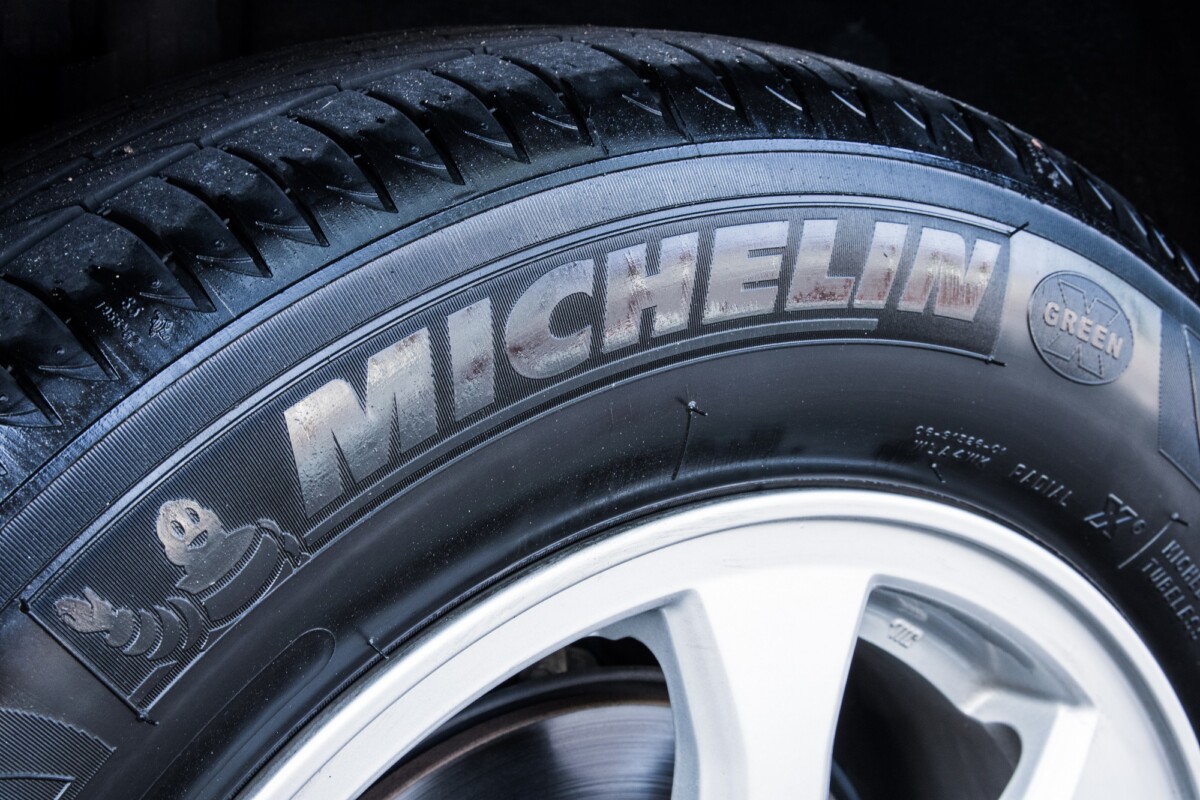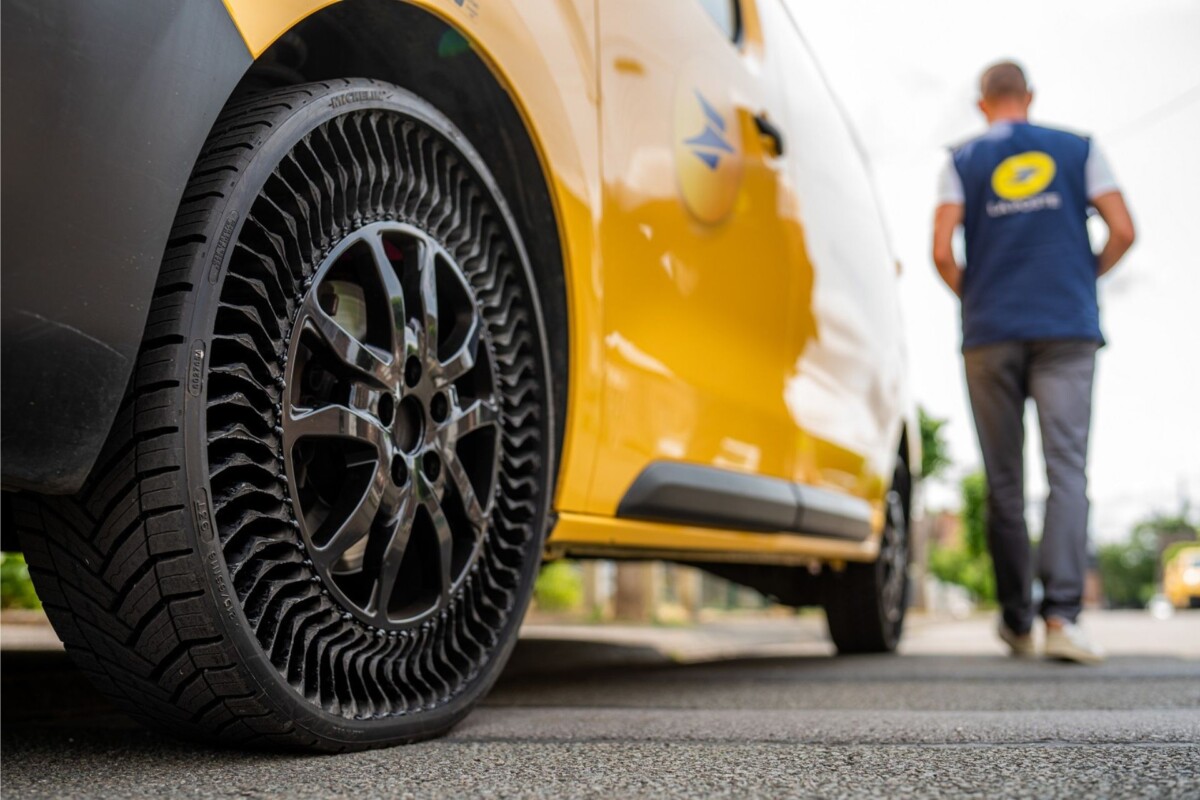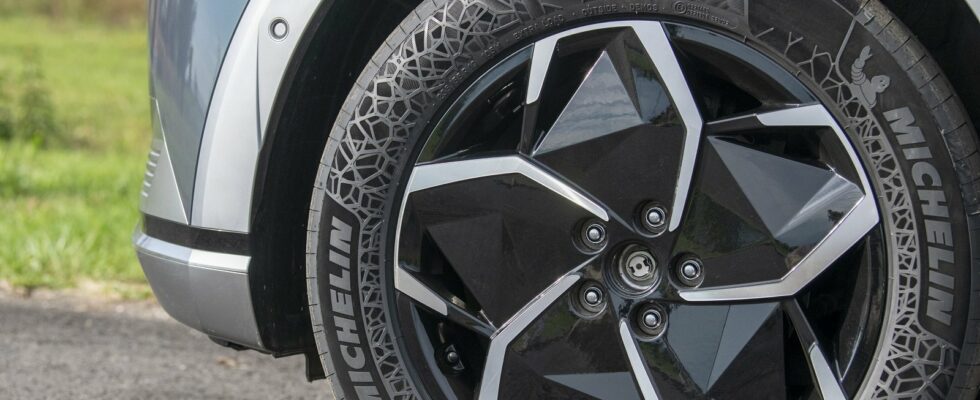The French tire manufacturer Michelin has just inaugurated the first industrial demonstrator to produce bio-sourced butadiene. The company will soon be able to replace oil with ethanol to make its tires.
In the French automotive landscape, Michelin is undoubtedly the best-known manufacturer and, also, the most renowned. The Clermont-based company has been working for many years to make its products more environmentally friendly, and a new stage has just been reached with a small revolution, reported by a press release.
But first, let’s briefly recall how a tire is made. To put it simply, manufacturing a tire involves several steps. Materials such as rubber, steel wires and textiles are prepared. Next, the carcass is constructed by layering layers of rubber-impregnated yarns and textiles.
Calendering shapes the tread and sidewalls, followed by vulcanization to harden the rubber. The components are assembled, the tire is balanced, inspected and subjected to quality controls. Finally, the tires are packaged and ready for distribution to manufacturers or points of sale.
Replace petroleum with ethanol
In this whole process, there are obviously “polluting” agents which intervene, including oil. But Michelin has just presented an alternative to “black gold”, so much criticized in recent years.
Michelin, IFPEN (French Institute of Petroleum and New Energies) and Axens jointly inaugurated the first industrial demonstrator for the production of biosourced butadiene in France, on the Michelin site in Bassens, near Bordeaux. This demonstrator is a key element of the BioButterfly project, a collaborative initiative supported by ADEME.

The objective of the project is to develop and commercialize a process for producing butadiene using ethanol extracted from biomass (plants) as a sustainable alternative to butadiene derived from fossil fuels. In other words, with this method, it would eliminate the famous petroleum-derived butadiene which alone represents around 14% of a tire.
It is a key raw material for the production of synthetic rubbers that Michelin has used for a long time to manufacture its products and which benefits from excellent resistance to abrasion and aging. Remember that Michelin already offers tires made from recycled material.
Michelin on all fronts?
Launched in July 2023, the industrial demonstrator aims to validate the entire biosourced butadiene production process. It seeks to demonstrate the technological and economic viability of the process, with a production capacity of between 20 and 30 tonnes per year.
The commercialization, managed by Axens, constitutes a key step to guarantee significant volumes of renewable butadiene on the market. It remains to be seen, obviously, whether there will be a perceptible change in terms of use and longevity compared to so-called “traditional” rubbers.

Remember that Michelin has also been working for several years now to develop innovative, airless tires. The latter bear the name Uptis, which is none other than the abbreviation of Unique Punctureproof Tire System. Their particularity? They don’t need to be inflated, since they don’t use air at all. They indeed have a supporting structure made up of flexible CVR (Glass-Resin Composite) slats.
Want to join a community of enthusiasts? Our Discord welcomes you, it is a place of mutual help and passion around tech.
